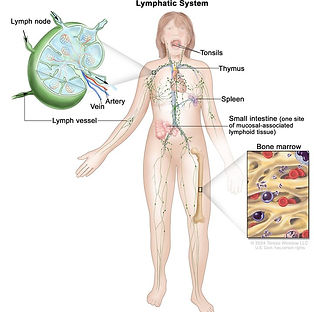top of page

What is Lymphedema?
Lymphedema is a condition caused by a buildup of lymphatic fluid in the soft tissues, most commonly in the arms or legs. It occurs when the lymphatic system, which normally helps drain fluid and filter waste from the body, is damaged or blocked. This can happen after surgery, radiation, infection, or trauma, especially when lymph nodes are removed or impaired. The fluid buildup leads to chronic swelling, a feeling of heaviness or tightness, skin changes, and an increased risk of infection, like cellulitis. Lymphedema is a chronic condition, but with proper management, symptoms can often be controlled.
The first step in treating lymphedema is to address any underlying conditions that may be contributing to the problem. This may involve managing any infections or other health issues that are present. Additionally, a healthcare professional may recommend a range of lifestyle changes to help reduce the risk of lymphedema, such as staying active and maintaining a healthy weight. In addition to these measures, there are several medical treatments that can be used to manage lymphedema.





It's important to note that lymphedema is a chronic condition, and there is no cure. However, with proper treatment and management, it is possible to control symptoms and maintain a good quality of life. A healthcare professional can help develop an individualized treatment plan based on the specific needs and goals of the patient.
bottom of page